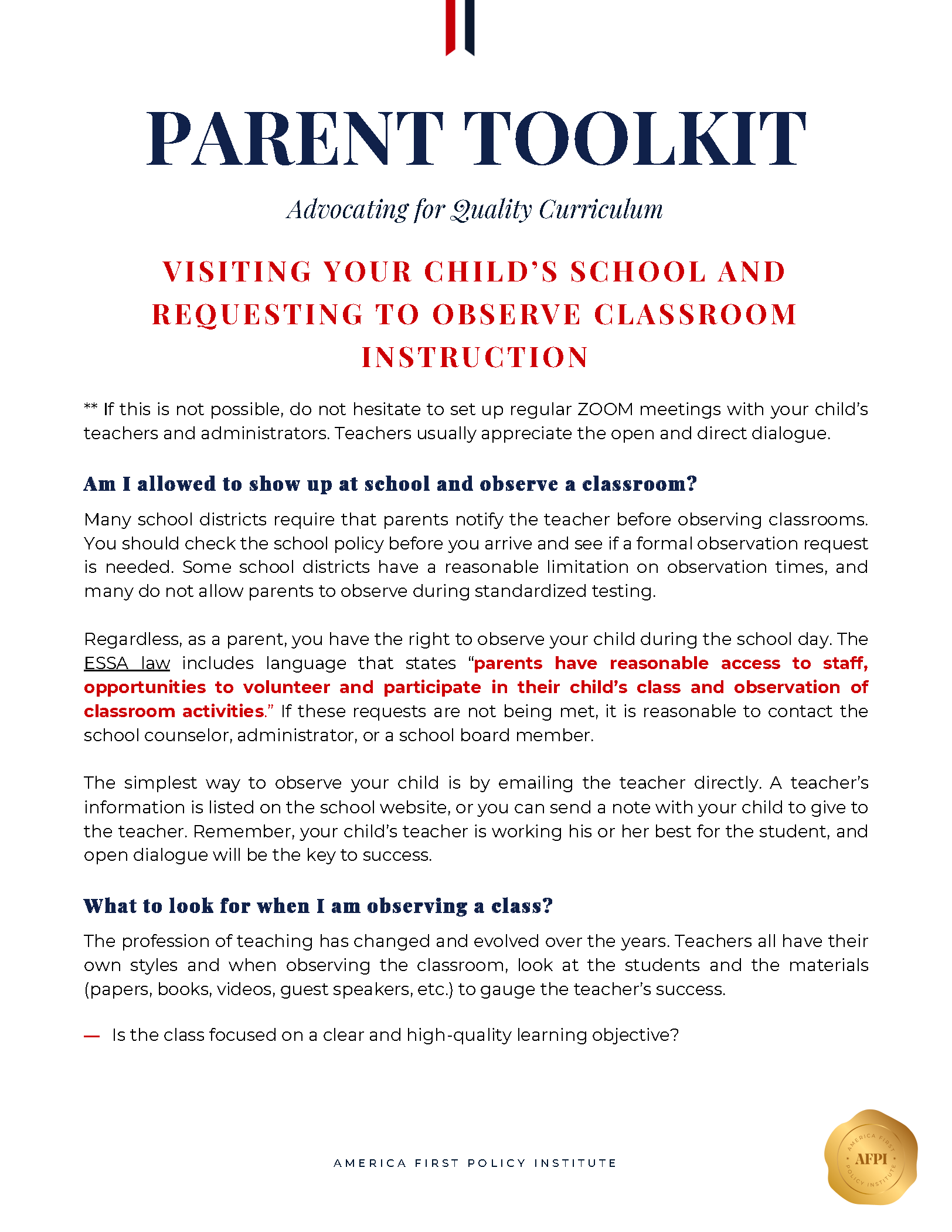Parent Toolkit - Advocating for Quality Curriculum: Visiting your Child’s School and Requesting to Observe Classroom Instruction
** If this is not possible, do not hesitate to set up regular ZOOM meetings with your child’s teachers and administrators. Teachers usually appreciate the open and direct dialogue.
Am I allowed to show up at school and observe a classroom?
Many school districts require that parents notify the teacher before observing classrooms. You should check the school policy before you arrive and see if a formal observation request is needed. Some school districts have a reasonable limitation on observation times, and many do not allow parents to observe during standardized testing.
Regardless, as a parent, you have the right to observe your child during the school day. The ESSA law includes language that states “parents have reasonable access to staff, opportunities to volunteer and participate in their child’s class and observation of classroom activities.” If these requests are not being met, it is reasonable to contact the school counselor, administrator, or a school board member.
The simplest way to observe your child is by emailing the teacher directly. A teacher’s information is listed on the school website, or you can send a note with your child to give to the teacher. Remember, your child’s teacher is working his or her best for the student, and open dialogue will be the key to success.
What to look for when I am observing a class?
The profession of teaching has changed and evolved over the years. Teachers all have their own styles and when observing the classroom, look at the students and the materials (papers, books, videos, guest speakers, etc.) to gauge the teacher’s success.
- Is the class focused on a clear and high-quality learning objective?
- Do the students understand what they are doing, and can they demonstrate what they learned through knowledge and skills?
- Are they engaged in a learning atmosphere?
- Is the class being taught material that is consistent with the schools’ policies?
- Are any of the activities centered around “social justice”, “white privilege,” or “action civics”?
- Is the teacher moving around the classroom, ensuring all students are engaged?
- Are the students on task and thinking about the lesson at hand? o Talking in the classroom is a good thing and group work is a teaching strategy that helps children learn.
- Is there positive energy in the room?
- Are students allowed to share their opinions openly and freely, or are class discussions one-sided?
More Resources
July 06, 2023
AFPI Leads the Charge in Most Historic Year for School Choice Progress
At the America First Policy Institute (AFPI), we believe that the transformative progress on school choice will help prepare Americans for the rights and responsibilities of citizenship.
April 04, 2023
FACT SHEET: Colorado HB23-1003 Gives Parents Less Control Over Their Child’s Education
“I do not believe in co-parenting with the government, and I never will. Parental rights are a God-given blessing. I am deeply saddened to see our country even debating who should…
March 24, 2023
